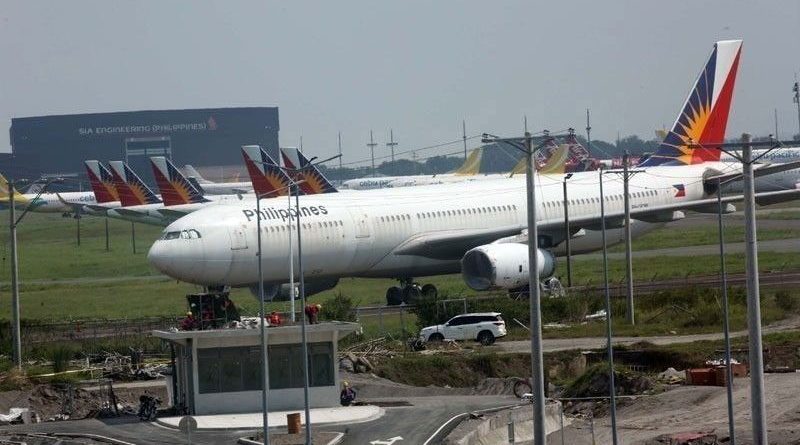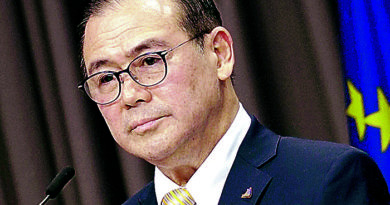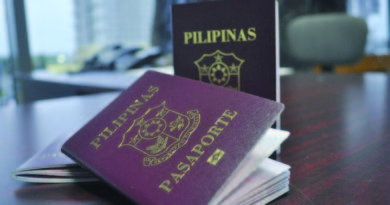posted June 10, 2021 at 01:30 am
by AFP
.
.
.
The United States government has lowered its travel alert for the Philippines from Level 4 to 3.In an advisory posted on June 8, the US State Department advised Americans to still reconsider travel to the country due to “high level” of COVID-19.Under Level 3, US citizens are encouraged to get fully vaccinated before travel, while those unvaccinated travelers were told to avoid non-essential travel.In April, Americans were advised against all travel to the Philippines after the US Centers for Disease Control and Prevention raised to “Level 4: Very High” its COVID-19 advisory for the country, the highest of its pandemic warnings.America’s “do not travel” notice, meanwhile, remains in place in Marawi City and the Sulu archipelago, including the southern Sulu Sea due to crime, terrorism, civil unrest, and kidnapping.A “reconsider travel” warning also covers other parts of Mindanao.
.
.”The Philippine government maintains a state of emergency and greater police presence in the Cotabato City area, and in the Maguindanao, North Cotabato, and Sultan Kudarat provinces,” the State Department said.”Terrorist and armed groups continue to conduct kidnappings, bombings, and other attacks targeting US citizens, foreigners, civilians, local government institutions, and security forces,” it added.Meanwhile, France and Belgium further relaxed their COVID-19 restrictions Wednesday, allowing restaurants and cafes to serve indoors.The pandemic’s impact on life around the planet was also illustrated Wednesday with a shake-up of the list of the world’s most livable cities, with Auckland rocketing to the top on the back of New Zealand’s successful coronavirus response.With more than 3.7 million lives lost globally, many nations are still struggling to contain their coronavirus outbreaks, but the rapid vaccine rollout in wealthier parts of the world such as Europe is allowing the return of some activities considered unthinkable just a few months ago.”A new step will be taken” on Wednesday, President Emmanuel Macron wrote on Twitter, when people in France will be able to enjoy outdoor dining and stay out until 11 p.m.
.
.
Ads by: Memento Maxima Digital Marketing
@[email protected]
SPACE RESERVE FOR ADVERTISEMENT
.
“Life will resume across our lands.”If all goes to plan, French authorities will drop the overnight curfew entirely on June 30. In virtually all of France, however, masks remain obligatory even outdoors.Belgium will also relax restrictions, allowing cafes and restaurants to serve indoors. Prime Minister Alexander De Croo announced longer operating hours for businesses and easing of restrictions on sports venues and cinemas.
.
.
Ads by: Memento Maxima Digital Marketing
@[email protected]
SPACE RESERVE FOR ADVERTISEMENT
.
European nations are ramping up vaccinations as they try to strike a balance between public health and reviving sectors such as tourism that were devastated by pandemic travel restrictions.The hopeful outlook in Europe is a far cry from the early days of the pandemic, when it was one of the worst-hit regions in the world.The impact of that phase was visible in the world’s most livable cities list released Wednesday, which saw cities in Australia, Japan and New Zealand — all with swift coronavirus responses – leaping ahead of those in Europe.”Auckland rose to the top of the ranking owing to its successful approach in containing the Covid-19 pandemic, which allowed its society to remain open and the city to score strongly,” said theEconomist Intelligence Unit, which compiles the list.
.
It cited the stress on health infrastructure for the poor showing of European cities, which also had a knock-on effect on culture and= overall livability because of restrictions on movement.Australia’s successful coronavirus response has included snap lockdowns for even small outbreaks. Five million Melbourne residents are set to emerge from one such two-week lockdown on Thursday, imposed in response to the detection of a cluster.The United States on Tuesday eased its warnings against travel to dozens of countries including Olympics host Japan and much of Europe, with the State Department asking Americans to reconsider travel but ending blanket advice to not go at all.
.












